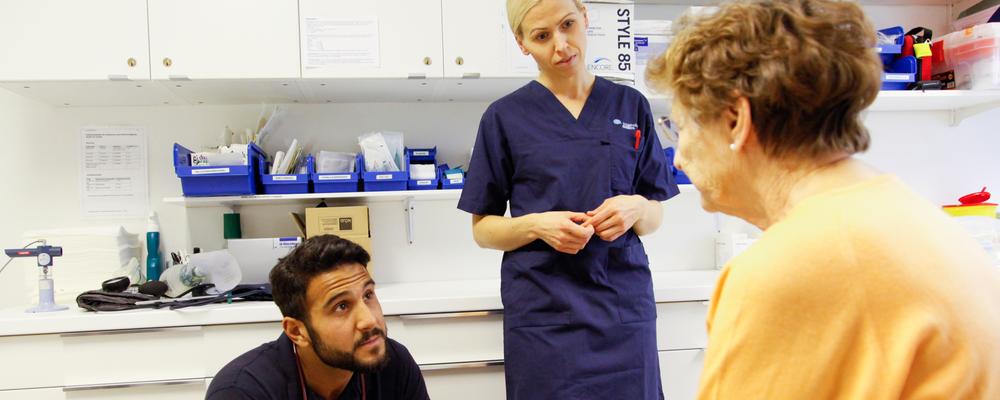
General Practice (Family Medicine)
What kinds of primary-care initiative can help people gain better health? How does physical activity affect mental ill-health and work capacity? How should we set about using antibiotics in a way that is sustainable in the long run? These are examples of issues that concern researchers in General Practice (Family Medicine).
General Practice (Family Medicine) is a broad research area that has a patient-centric perspective and therefore concerns many people. Our researchers work closely with primary-care research and development units in two regions, West Götaland and Halland.
Common diseases
We work to develop knowledge about diseases that affect large numbers of people. Common chronic conditions include diabetes, high blood pressure and mental ill-health. Symptoms and illnesses that are often more short-lived include infections, acute lumbago and migraine.
Our research identifies the risk factors that cause people to develop ill health and explores how these factors interact. We also examine how factors such as gender, education level and lifestyle affect human health.
Projects in primary care
Many of our researchers are engaged in numerous projects. Some are small, while others are major research programmes in which, for several years, we monitor certain parts of the population. Examples are several large studies investigating women’s health.
We also study what helps to create good communication in the meeting between patient and doctor (the consultation). Our goal is to develop various types of decision support in health care. Ideas for the research projects come from, and have a major bearing on, primary care.
Research and practical application
In exploring scope for introducing new clinical methods in health care, we are an active partner in applying our own and others’ findings – that is, ensuring that they are genuinely disseminated and can be used to develop care. For example, there are now staff who coordinate care for patients with mental health problems. These care coordinators are responsible for enabling patients with these problems to receive high-quality care. They also provide individuals with opportunities to participate in drawing up care plans adapted to their specific needs.
Our research areas
The areas we focus on, which are important for primary care and human health, are:
- Physical health and the brain
- Women’s health
- Lifestyle, stress and mental health
- Diagnosis and management of infectious diseases
- Medical education and consultation research
- Preventive General Practice
Close connection between research and education
There is close cooperation between the Institute’s research and our education and training, in which many of our researchers too are involved. They supervise doctoral students and teach on our regular programmes, freestanding courses and vocational care programmes within Sahlgrenska Academy.
